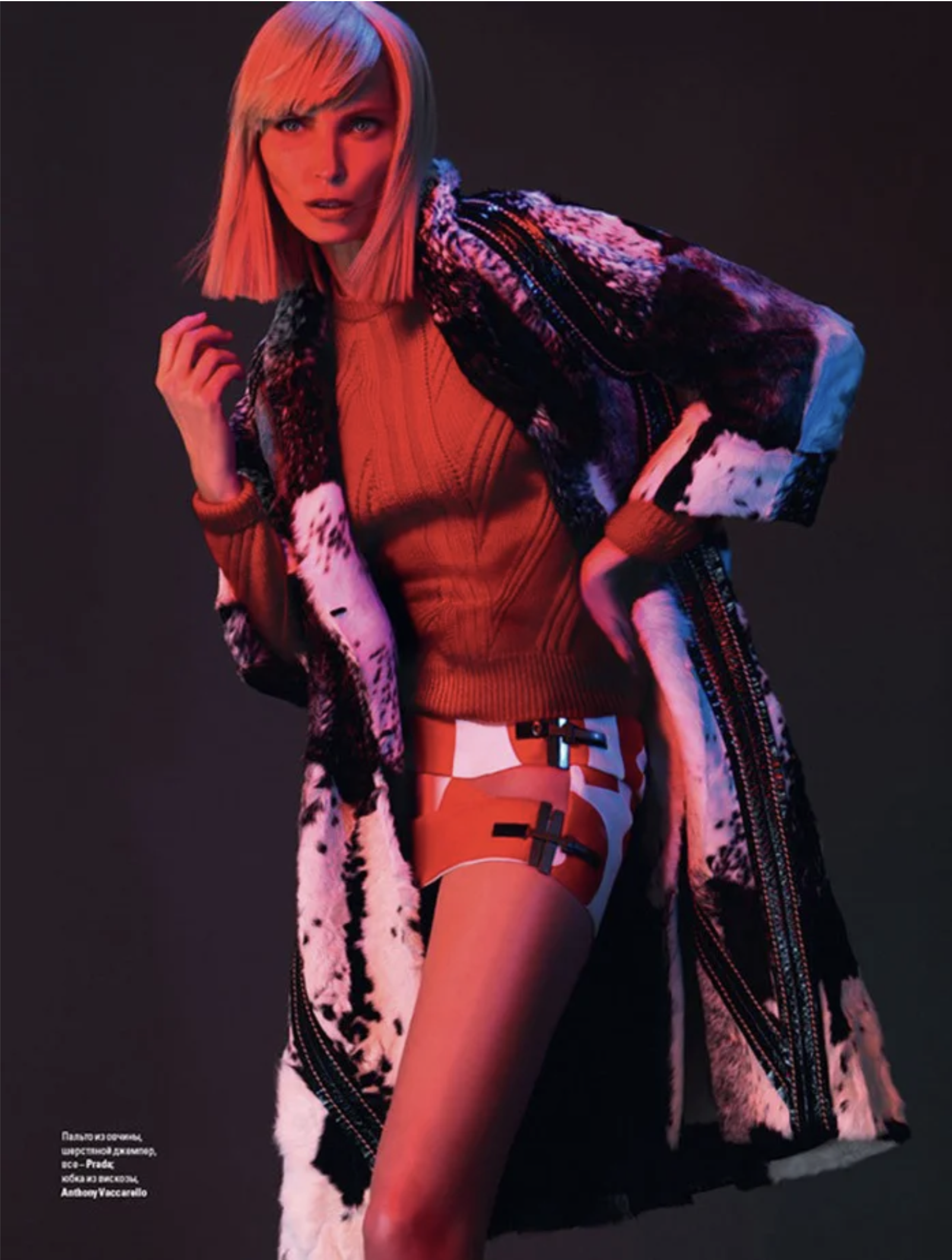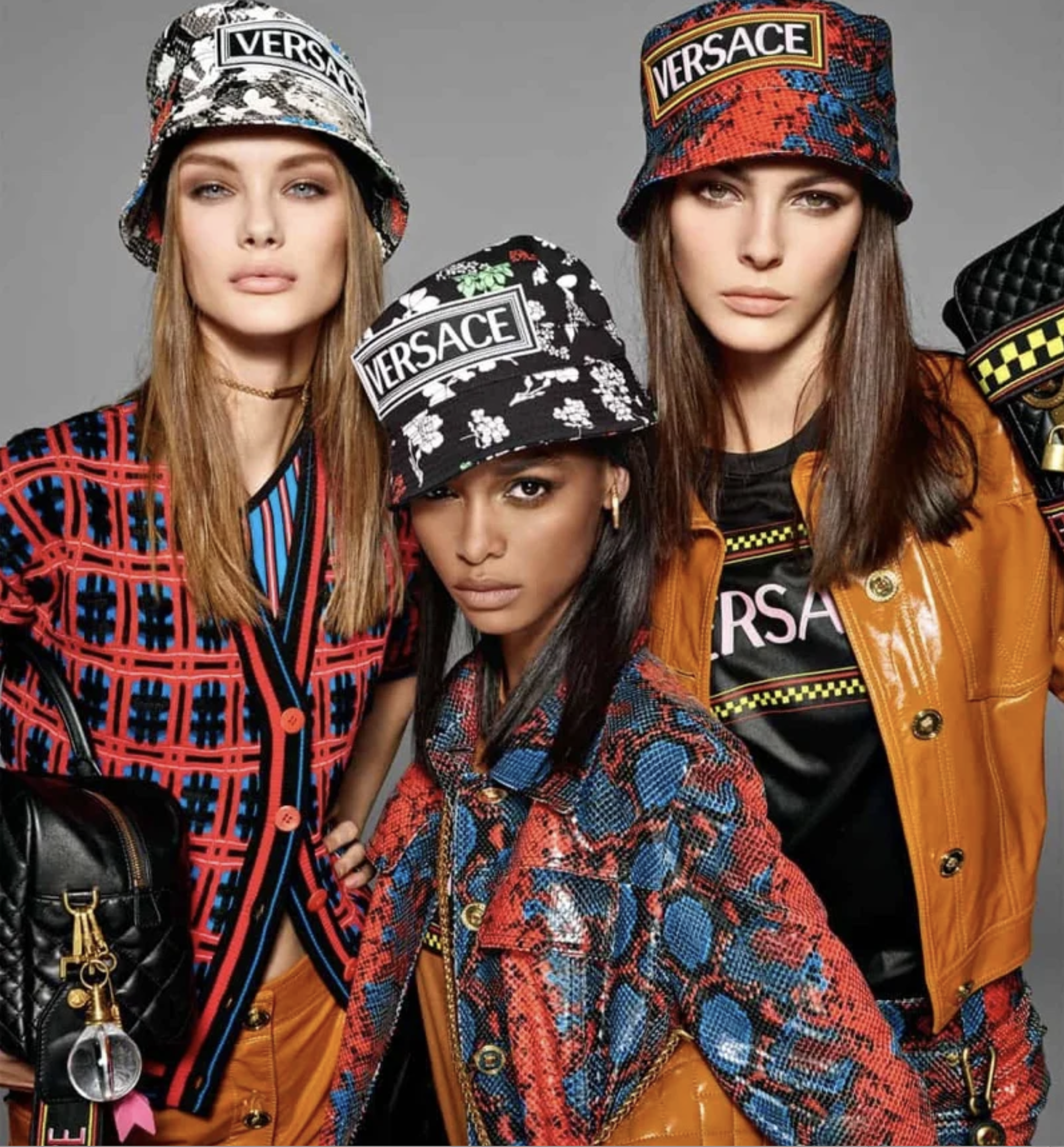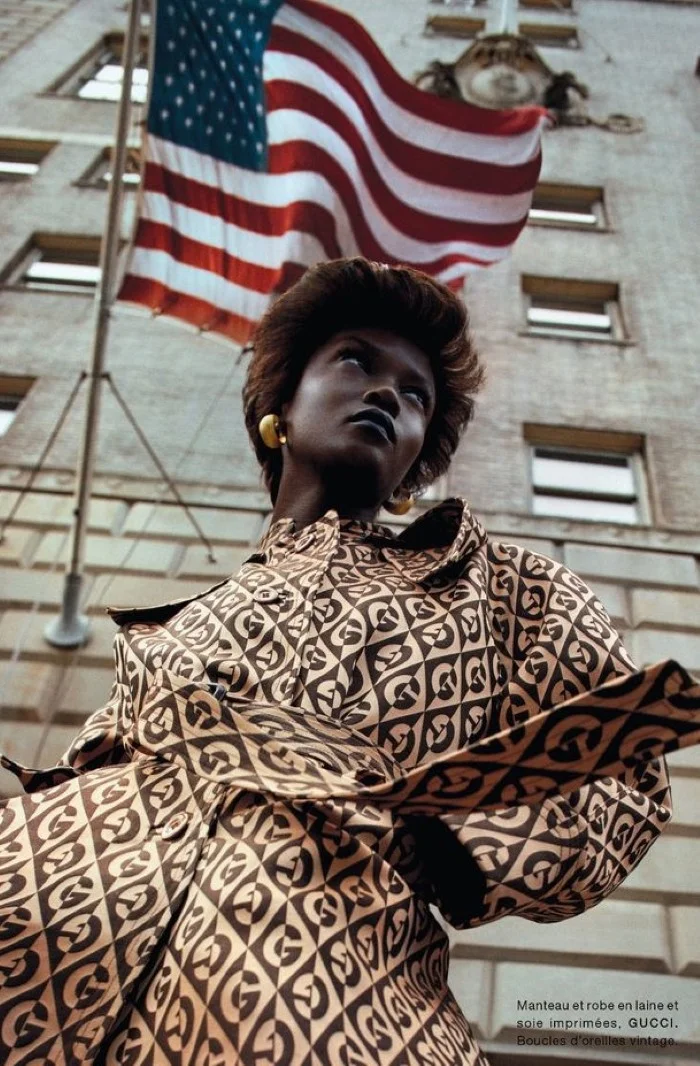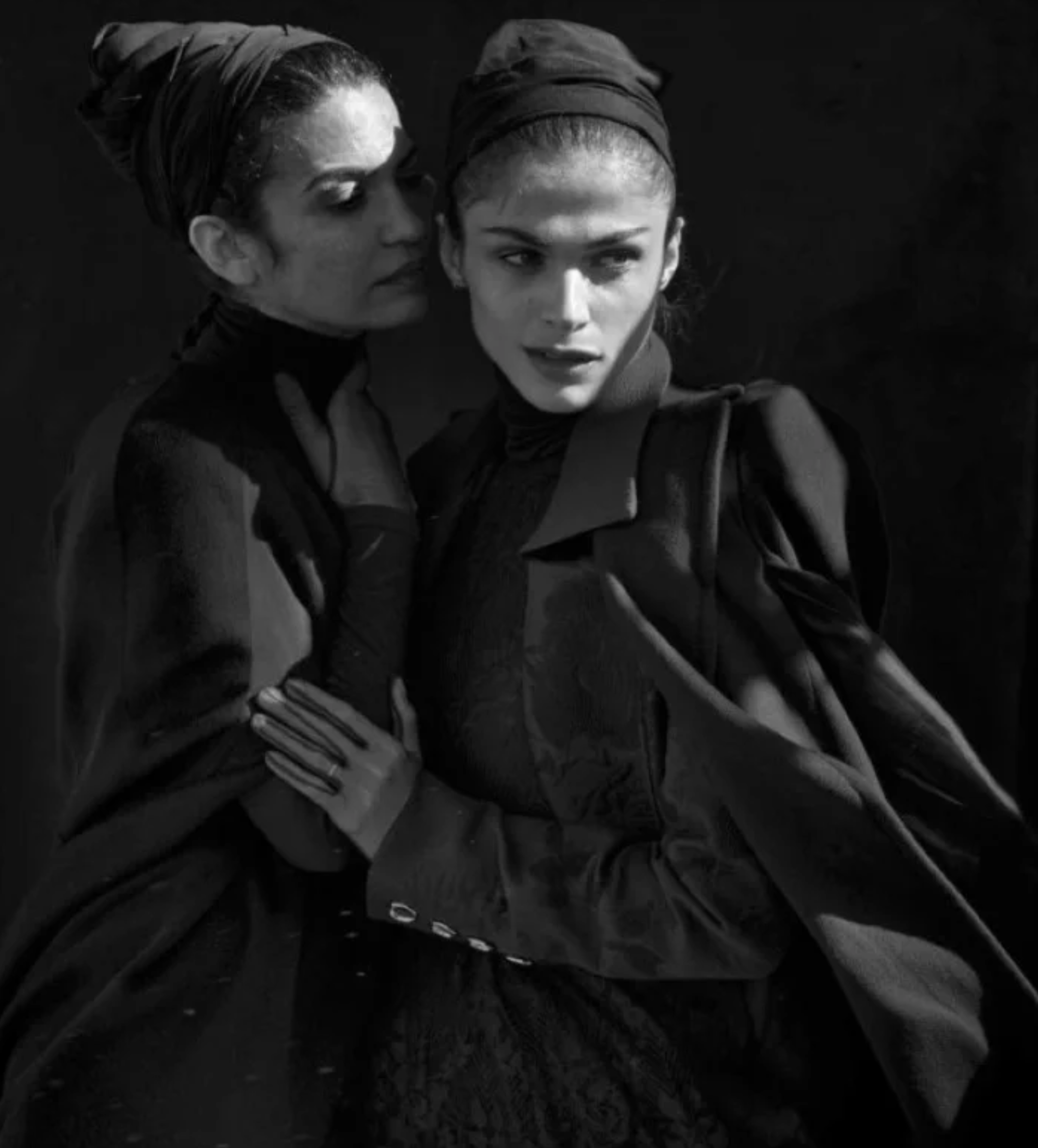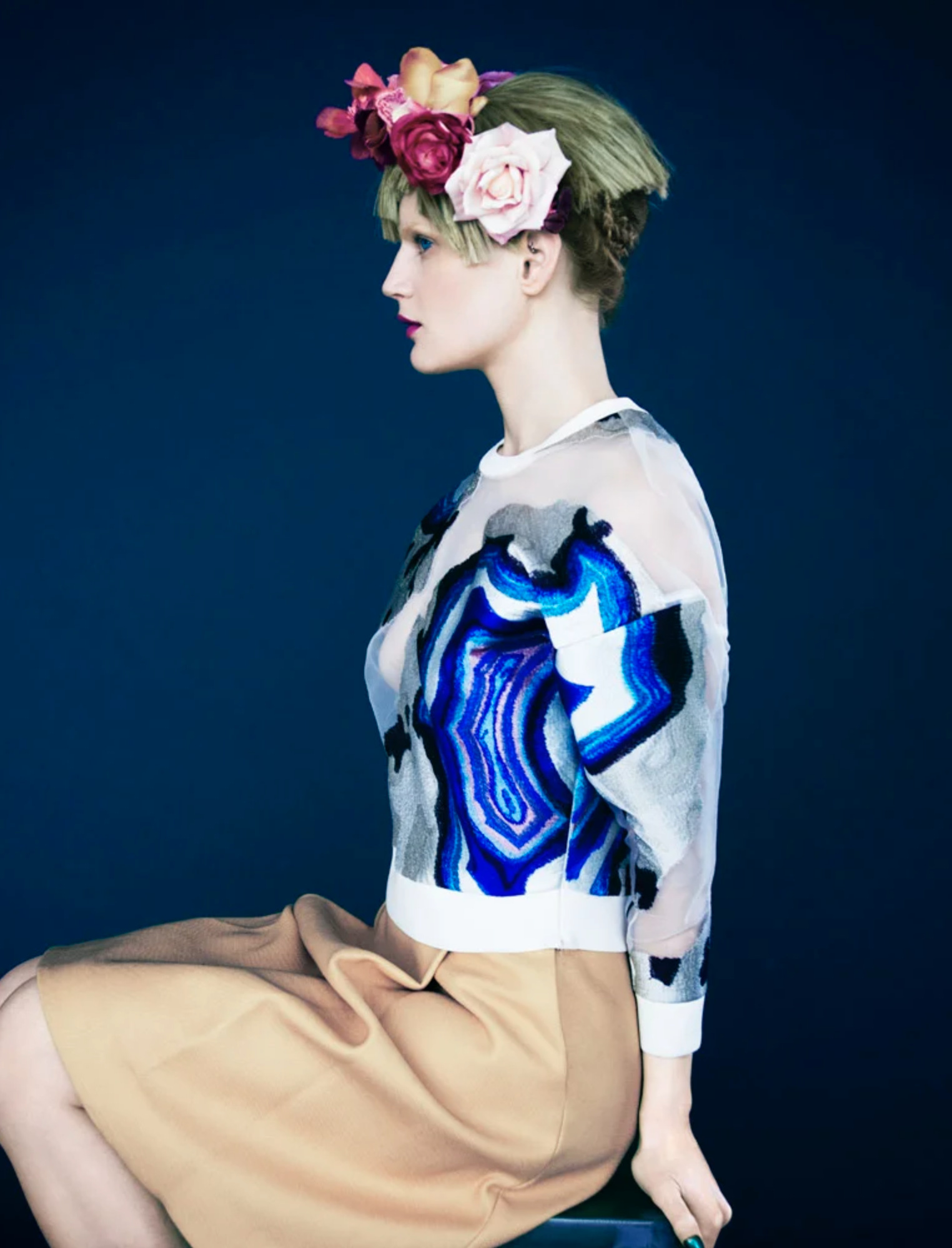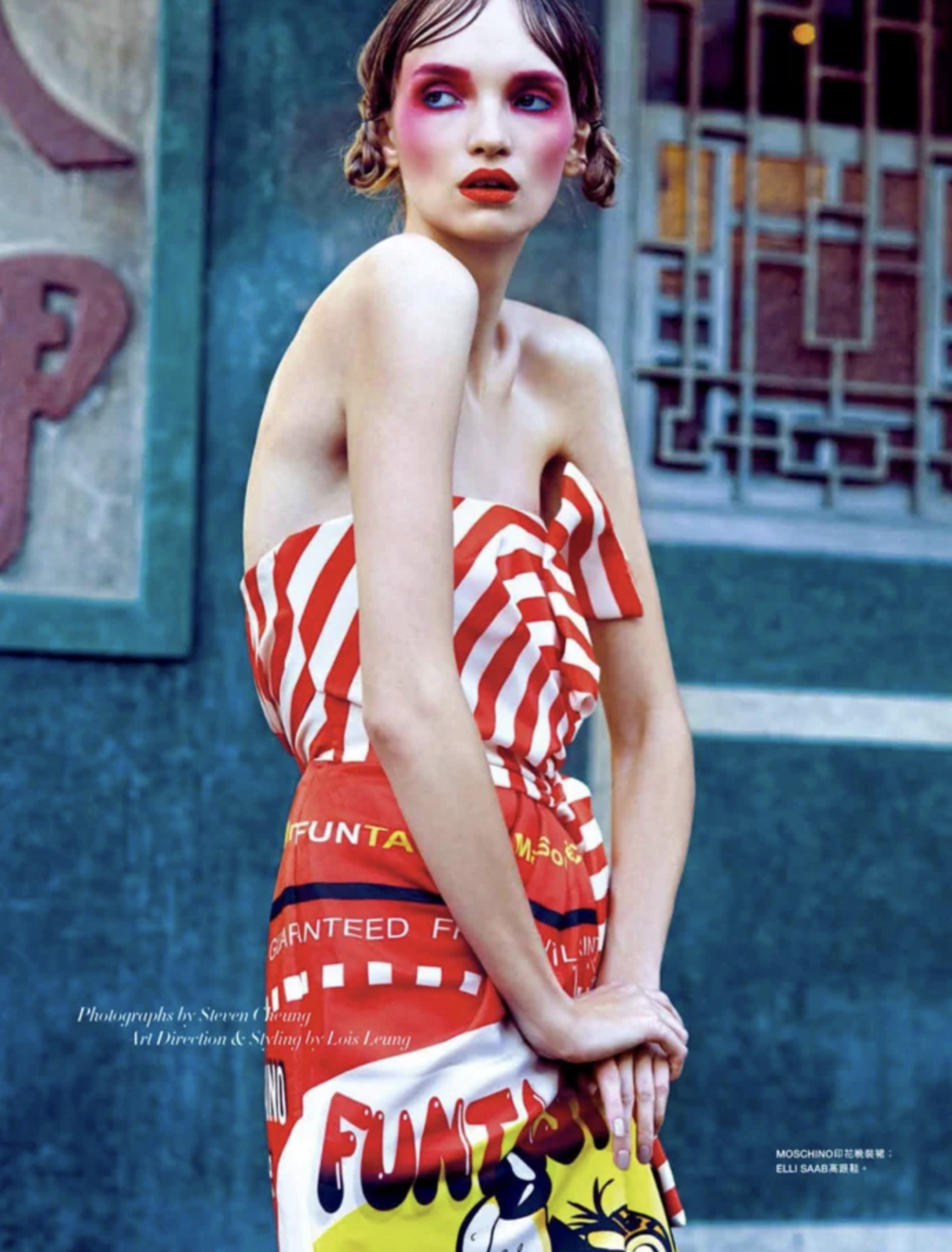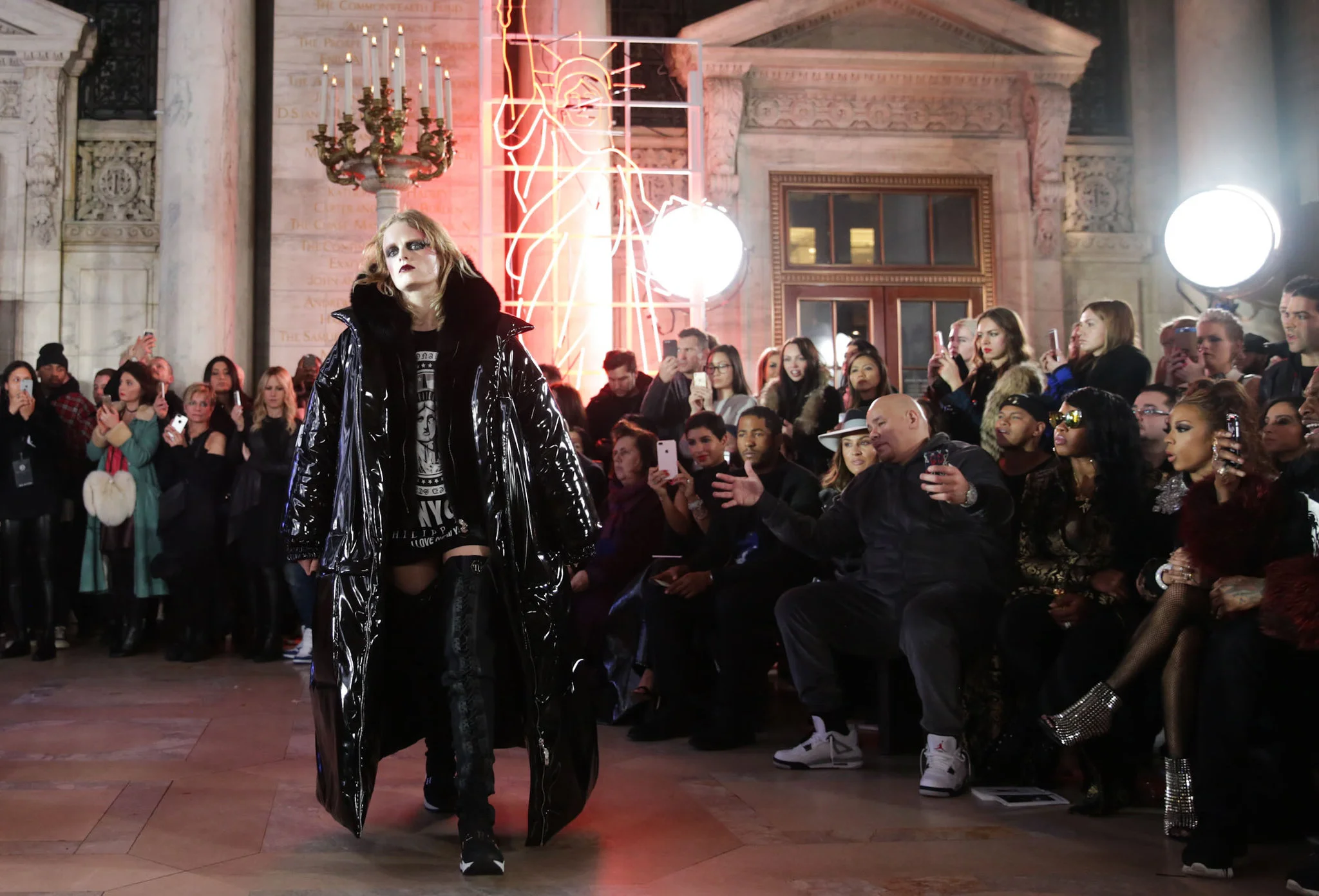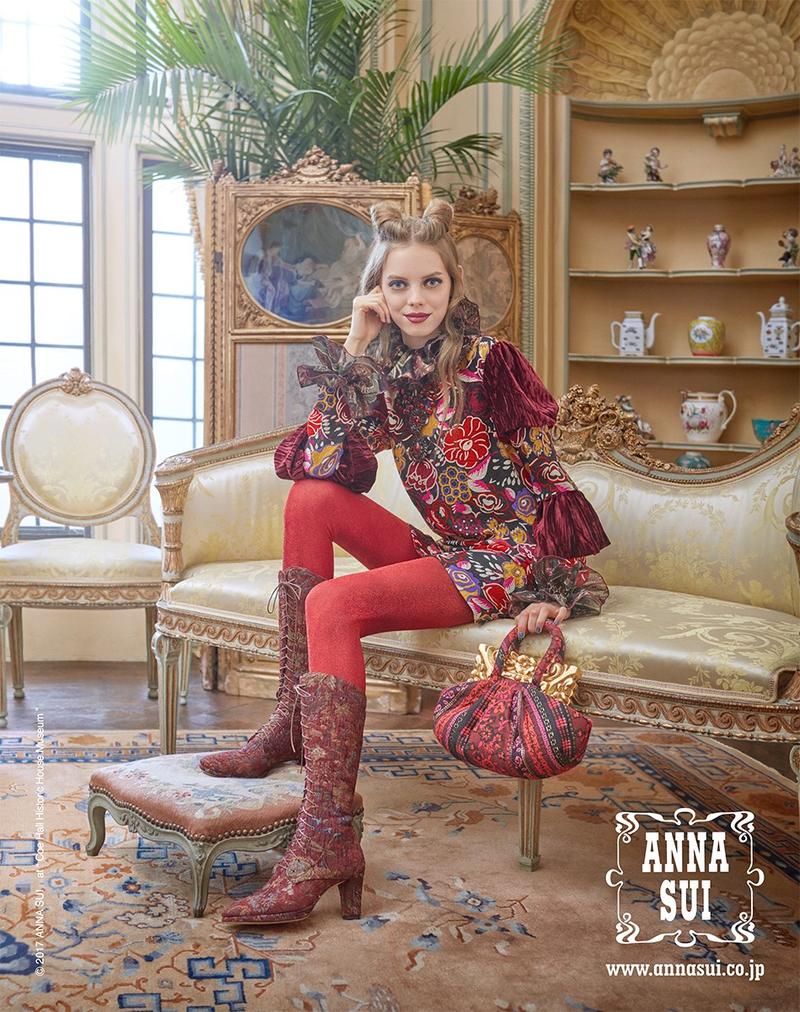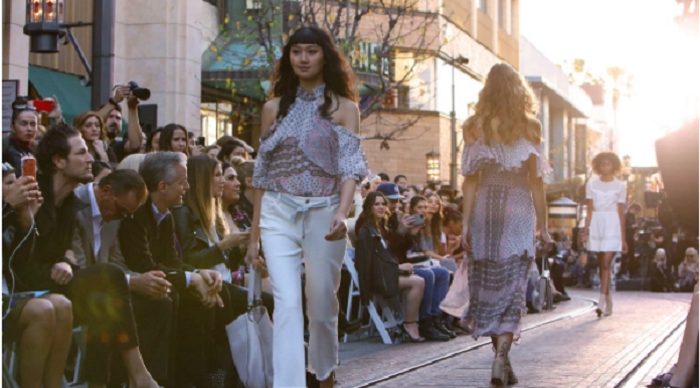Eye: Fashion Industry Leaders Ask If NYFW -- Or Runway Shows At All -- Remain Relevant
/The Philipp Plein extravaganza at the New York Public Library in February 2017.CreditBen Sklar for The New York Times
Vanessa Friedman @New York Times
New York Fashion Week has officially begun, thanks to a Wednesday evening kickoff by Tom Ford. Writing for the New York Times, Vanessa Friedman asks about NYFW: "Is it a sinking ship, in the soup, up the creek? Is it — gasp! — over?"
Friedman isn't speaking literally, with 130 shows on the NYFW calendar. Rather, “over” in the substantive sense. Are New York's days as a power player in a global fashion system "over"? Does New York even register as an influence in helping to define how women dress in an effort to visually define themselves.
Consider Melania Trump's fashion influence vs Brigitte Macron's. Is Trump an empty suit, granted one very capable of doing a lot of damage, while French president Macron -- yes, with tough ratings as he attempts reforms with France's labor unions -- the authentic global power player?
The New York fashion week experience is for sale, writes Friedman. Call it 'fashertainment.
If you measure success during shows simply by viewership, by clicks and buzz, that’s probably absolutely fine. More people may be watching more catwalks. But if you measure success by the ability to bring decision makers to the city because they have to see — for themselves, not through a screen — the way a garment moves on the body, how it can resonate in the memory and change the way an individual may dress so that consumers look to this country for leadership, it might not be.
The New York City economy has $900 million a year riding on the city's fashion influence.
It's the Paris fashion schedule that is exploding, writes Friedman. The reality of the New York fashion influence "underscores the stereotype that Paris is a more fertile place for aesthetic growth than New York, one that focuses on creativity as opposed to — sniff! — mere clothes."
While the introduction of Trumpian political questions is my own, if you believe that the global business of fashion is divided more by psychographics than geography, it's a fact that in the age of Trump, many people who work in fashion are digging into our European experiences and shared identity just to maintain our own inner balance. More than ever, we are channeling our global citizens' credentials.
It's true that just as Planned Parenthood was a major beneficiary of NYFW support in February, the American Civil Liberties Union will be front and center this week. Models are encouraged to wear 'Model Citizen' T-shirts between show, designed by Prabal Gurung for the Council of Fashion Designers of America.
“We want to be on the front line, not the sidelines, to boldly fight to protect our precious rights and freedoms,” said Steve Kolb, chief of the CFDA said in a news release. More than ever, fashion is at its essence about identity politics. Large corporate brands have traditionally avoided controversy by taking a stand on behalf of cultural and social issues. Yes, New York could lead in this category, with every brand making its own statements on its own causes. There's a danger there, too, writes Friedman.
". . . out of the cacophony needs to come a core of consensus. Otherwise it risks the worst look of all: irrelevance. Accessorized by parochialism."
Elizabeth Segran @Fast Company
Segran asks whether Fashion Weeks even remain relevant. Ever focused on the future Fast Company's Segran wonders if the next generation of aspiring designers will choose news ways of displaying their collections to the public. Note that she didn't write "editors and buyers" because that's old-school.
Segran turns to Rebecca Minkoff, who first showed at NYFW in 2009, and Anna Sui, who had her first runway show in 1991.
THE CASE FOR FASHION WEEK–ANNA SUI
Model Mariana Zaragoza by KT Auleta for Anna Sui Fall 2017
Read Anna Sui's significantly expanded comments on Fast Company.
The best showcase for what I am trying to say is a show. Every designer is different. I’m wired to do a show. I like to transport my audience and take them on a journey. I think that this is why people have always been interested in my vision. It’s never just about a pretty dress.. .
But it’s not just a wonderful performance: It makes business sense for me. I think that the show is what generates all the interest in my brand, including my licenses and my cosmetics and fragrance lines. I think it is an important part of what has made me successful.. . .
But I’m also not living under a rock. Things are changing in the industry and we’re also trying to keep up. We’re modernizing by taking advantage of technology. We have a web store, where a lot of our current sales come from. We also do a lot of business through (Chinese social media platform) WeChat. We’re embracing all that, but I still love doing the show.
THE CASE AGAINST FASHION WEEK–REBECCA MINKOFF
Designer Rebecca Minkoff’s Spring 2017 “See Now, Buy Now” fashion show at The Grove on February 4, 2017, in Los Angeles. [Photo: Rachel Murray/Getty Images for Rebecca Minkoff]
Read Rebecca Minkoff's significantly expanded comments on Fast Company.
. . . We’ve always taken the approach that we didn’t win by following the pack. We won by listening to our consumer and going our own way.
We decided to switch gears from Fashion Week for several reasons. First, we saw so much image fatigue from consumers, who were seeing our looks blasted on social and in magazines and on celebrities, then waiting six months to have it. Then three weeks post-Fashion Week, it would be in fast-fashion retailers at a quarter of the price. The culmination of all of this was that you finally get the goods in the store, and everybody is like, “I am so sick of that already.”
So we decided to take a risk and go to the “See, Buy, Wear” model and see what happened. The first time was the hardest: We were trying to get out of old habits. But then the sales figures came in. The first season we did this, our sales were up 211% from February to February. The following season, they were up 264%. When we saw those numbers, we thought it would be really stupid not to continue.. . .
The cost is another thing to consider. Traditional New York Fashion Week shows are extremely expensive, especially for young designers. Our shows have been a fraction of the cost of a traditional fashion week show and we often have brands–from Amex to Tresemme to Essie to Chandon–that want to partner with us to sponsor the show. They’ve definitely helped to make the show an affordable activity.. . .
Moving forward, we’ve decided that we will always do the “See, Buy, Wear” model but the experience will shift every season. . . .
In the future I can imagine the industry going in a range of different directions. Perhaps Fashion Week shows will become ticketed events for consumers, which will help pay for them. What if the CFDA (Council of Fashion Designers of America) sold tickets, and a portion of the proceeds helped emerging designers? . . .
